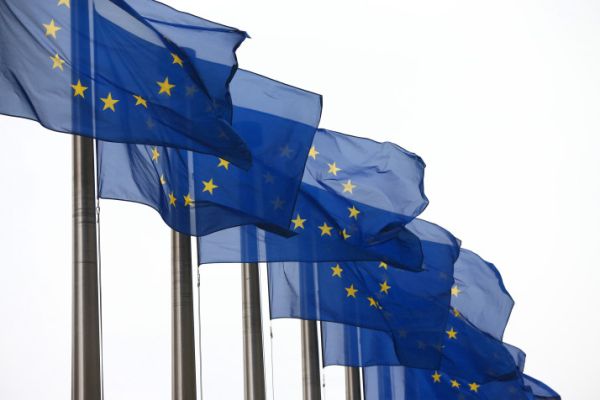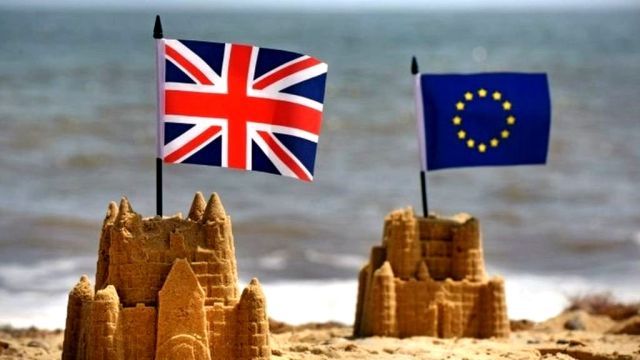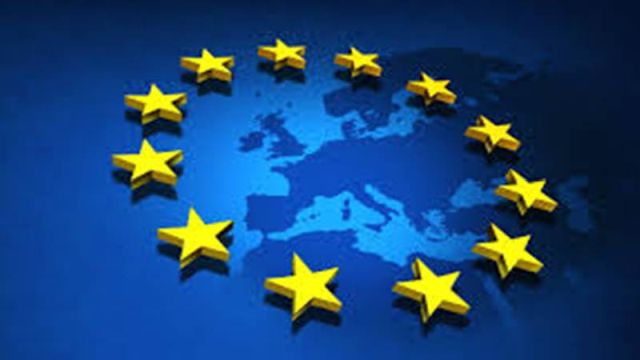
by admin | May 25, 2021 | Muslim World
 Jerusalem : The European Union made a new contribution of €2.37 million to support Palestinian farmers and agro-businesses in the West Bank.
Jerusalem : The European Union made a new contribution of €2.37 million to support Palestinian farmers and agro-businesses in the West Bank.
The contribution was channeled through the Palestinian Authority’s program “Assistance to Agriculture in the West Bank (AAWB)”, the EU said in a statement published Thursday by Palestinian news agency WAFA.
A total of 241 Palestinian farmers and agro-businesses affected by the Israeli occupation in the West Bank will benefit from this new contribution. This support will help the farmers relaunch, repair or replace damaged businesses through different activities including the acquisition of agricultural supplies, rehabilitation of land and other small infrastructure works.
This contribution also brings the total beneficiaries of the program up-to-date to 365 farmers, according to the EU statement.
”The agricultural production is a crucial sector of the Palestinian economy. The support to the agricultural sector is essential to build a future Palestinian State with a viable economy. In this context, the EU contributes to programs run by the Palestinian Authority to support agro-businesses in the West Bank and Gaza Strip,” said EU Representative Ralph Tarraf.
The overall financial envelope of AAWB program amounts to €7 million. It is expected to serve about 450 eligible beneficiaries in the West Bank with a focus on Area C. The program is managed by the Palestinian Ministry of Agriculture and the Palestinian Agriculture Disaster Risk Reduction and Insurance Fund. The payments are made by the PA’s Ministry of Finance and Planning through a network of local banks in the West Bank.
—AB/UNA-OIC

by admin | May 25, 2021 | Opinions
 By Amit Kapoor,
By Amit Kapoor,
Divorces are always messy, but none have so much at stake as the separation of Britain from the European Union (EU).
Almost two-and-a-half years after 52 percent of Britons who voted in favour of a Brexit, Prime Minister Theresa May has managed to draft a deal that aims to withdraw the country from the EU before the cut-off date of March 29, 2019. Even though the deal has been begrudgingly passed by May’s cabinet, there are virtually no supporters for it on either side of the Brexit debate.
Britain has four ways to go about Brexit: A hard Brexit; a softer Brexit; a sketchy middle ground where May has ended up with the current deal; or simply, no deal, where Britain drops out of the EU after the cut-off date and ends up reverting to standard international trading rules. The last case is simply catastrophic where tariff and border checks would immediately be put in place and movement of people would become restricted.
A hard Brexit would also imply the UK making a definitive split from the EU, ending its membership in the single market, customs unions and the court of justice. This would give UK more freedom to set its own rules and regulations. A softer Brexit would imply lesser change from the status quo. A really soft Brexit could even involve the possibility of UK staying on in the single market or customs union.
The major complication in coming to an agreement arises from the case of Northern Ireland. The region, which is a part of the UK, could spiral into sectarian violence if it is separated from Ireland through physical barriers or checkpoints or, in other words, a hard border, as it would limit the flow of people and goods between the two regions.
The Ireland-Northern Ireland border has been open since 1998 after the Good Friday Agreement was ratified to bring peace to the region after decades of violence. However, a clean Brexit would require imposition of hard borders between the UK and the EU, which implies a hard border between Northern Ireland and Ireland as the latter is a part of EU. Such a scenario would eventually end in rising tensions, which everyone wants to avoid at all costs.
So, the Brexit dilemma lies in coming to an agreement that retains the integrity of the UK and the Good Friday Agreement. May’s deal tries to circumvent this by letting the UK stay within the EU’s customs area, which would imply staying in the EU single market and avoiding hard borders, while allowing UK to make independent trade deals with other countries. As such a deal would not include the imposition of any hard borders, the free flow of goods and people between Ireland and Northern Ireland would remain unchanged.
However, it is obvious why such a deal has appeased no one. The pro-Brexit camp feels that the terms of the draft deal violate the very meaning of Brexit, which was to let UK regain control of its own policies. May’s plan forfeits the influential role that the UK played in the EU while making it a mere rule-taker of the union. The ability to negotiate its own trade deals would recover only a fraction of the cost of Brexit by the government’s own calculations.
Meanwhile, for the Remain camp, the deal is far worse than the status quo for almost similar reasons. The two factions have unanimously united over their dislike for the draft deal.
Such reactions should have been expected. It was evident that no one would have been satisfied with the final outcome of such a divisive issue. The very fact that no party is satisfied makes it the least unreasonable compromise. But at this stage, there is a strong case for a referendum on the exit deal. The Brexit votes were won by a very narrow margin at a time when the terms and the cost of the move were not known to the voters. There was a clear democratic deficit, which needs to be filled.
The idea of Brexit that was sold to the masses at the time was that the country would somehow manage to seize control of its policies and achieve higher prosperity in the process without incurring any significant economic costs for itself. The deal that has been chalked out in these two-plus years is nothing close to these promises of the “Leave” campaign. It is highly likely that the deal will not pass through the British Parliament itself but now that the extent of economic pain and long-term repercussions of Brexit are becoming clearer, it is vital to get a sense of the public opinion about the matter before the only option of a no-deal remains.
The latter outcome would be catastrophic for the both the British and the world economy; a prospect that is completely avoidable.
(Amit Kapoor is chair, Institute for Competitiveness. The views expressed are personal. He can be contacted at amit.kapoor@competitiveness.in and tweets @kautiliya. Chirag Yadav, senior researcher, Institute for Competitiveness, has contributed to the article)
—IANS

by admin | May 25, 2021 | Business, Emerging Businesses, Investing, Markets, SMEs, Social Media, Technology
 London : Facebook will train one million people and business owners across the European Union (EU) by 2020, and invest 10 million euros in innovation in France through its Artificial Intelligence (AI) research facility, the social media giant said on Monday.
London : Facebook will train one million people and business owners across the European Union (EU) by 2020, and invest 10 million euros in innovation in France through its Artificial Intelligence (AI) research facility, the social media giant said on Monday.
Over the next two years, Facebook will join digital growth partner Freeformers to offer training to 300,000 people across the EU — in Britain, France, Germany, Poland, Italy and Spain.
“For 75,000 people, this training will be in person, and the rest will be online.
“All training will be tailored to each person, so someone with very strong skills could be taught how to code, while others might learn how to open a bank account online,” Ciaran Quilty, Vice President, Small Businesses, EMEA, said in a statement.
“We’re committing to open three new community skills hubs in Spain, Poland and Italy,” Quilty added. These will run in partnership with local organisations, offering training in digital skills, media literacy and online safety to the underrepresented groups.
Facebook will offer business owners more types of training to help them expand their digital footprint and find new customers around the corner and around the globe.
This includes in-person training for 100,000 small and medium businesses (SMBs) by 2020 and online training for 250,000 businesses.
“As part of Facebook’s flagship #SheMeansBusiness program, we will provide digital skills training to more than 15,000 women in France,” the company said.
At its AI facility in France, the company will increase Facebook AI Research Paris’ PhD fellows from 10 to 40, granting scholarships to students, and funding 10 servers as well as open datasets for French public institutions.
“The announcements are part of our ongoing investments in digital training. Since 2011, we’ve invested more than $1 billion to support small businesses around the world,” Quilty added.
Nearly 35 per cent of SMBs on Facebook surveyed in France, Germany, Italy, Poland, Spain and the UK say they built their business on Facebook.
About 49 per cent say they’ve hired more employees due to growth since joining Facebook.
“Nearly 57 per cent of businesses surveyed say they have increased sales because of the platform and 60 per cent say that the platform helps them sell products in other cities and countries,” Facebook said.
—IANS

by admin | May 25, 2021 | Investing, World
 Brussels : The European Union (EU) on Monday adopted a total ban policy on EU investment in North Korea, in a bid to ratchet up economic pressure on the Northeast Asia country over its ongoing nuclear and ballistic missile programme.
Brussels : The European Union (EU) on Monday adopted a total ban policy on EU investment in North Korea, in a bid to ratchet up economic pressure on the Northeast Asia country over its ongoing nuclear and ballistic missile programme.
The total ban, taking effect immediately, is one of the EU’s autonomous measures against North Korea which was adopted by EU foreign ministers at a meeting in Luxembourg, according to a statement of the Foreign Affairs Council.
The ban was previously limited to investment in the nuclear and conventional arms-related industry.
The Council also slapped a total ban on the sales of refined petroleum products and crude oil to North Korea, and slashed the amount of personal remittances transferred to Pyongyang from 15,000 euros ($17,7000) to 5,000 euros ($5,900).
Furthermore, the Council added three persons and six entities to a blacklist of those subject to an asset freeze and travel restrictions, bringing the backlist to 41 individuals and 10 entities.
The EU has carried out all UN sanctions against North Korea, in addition to its autonomous restrictive measures against Pyongyang.
The UN Security Council on September 11 unanimously adopted a resolution to impose fresh sanctions on Pyongyang over its nuclear test on September 3 in violation of the previous Security Council resolutions.
The new sanctions severely restrict Pyongyang’s oil imports, and ban its textile exports worth $800 million dollars and the remittances from about 93,000 overseas North Korea labourers.
Reiterating that the “dual–track approach” and the “suspension for suspension” initiative are practical methods to solve the Korean Peninsula nuclear issue, Chinese Foreign Ministry spokesperson Geng Shuang has called on all relevant parties to actively support China’s efforts to push for dialogue and negotiation, and play a constructive role for a peaceful solution of the issue.
Pyongyang on September 3 detonated a hydrogen bomb capable of being carried by an intercontinental ballistic missile (ICBM), the sixth nuclear test it has undertaken, running counter to relevant UN Security Council resolutions and the goal of denuclearising the Korean Peninsula.
—IANS

by admin | May 25, 2021 | Muslim World
 Brussels : European Union (EU) leaders have voiced their commitment to the Iran nuclear deal and its full implementation by all sides, despite US President Donald Trump’s decision to decertify Iran’s compliance with the deal.
Brussels : European Union (EU) leaders have voiced their commitment to the Iran nuclear deal and its full implementation by all sides, despite US President Donald Trump’s decision to decertify Iran’s compliance with the deal.
The leaders of France, Germany and Britain, in a joint statement issued by 10 Downing Street on Friday, said they were concerned by the possible implications of Trump’s decision, urging the US Administration and Congress to consider the implications to the security of the US and its allies “before taking any steps that might undermine the JCPoA, such as re-imposing sanctions on Iran lifted under the agreement”, Xinhua news agency reported.
The Iran nuclear deal, formally known as the Joint Comprehensive Plan of Action (JCPoA), was the culmination of 13 years of diplomacy and was “a major step” towards ensuring that Iran’s nuclear programme is not diverted for military purposes, the statement stressed.
Noting that the JCPoA was unanimously endorsed by the UN Security Council in Resolution 2231, the leaders of the EU trio said the International Atomic Energy Agency “has repeatedly confirmed Iran’s compliance with the JCPoA” through its long-term verification and monitoring program.
“Our governments are committed to ensuring the JCPoA is maintained,” the joint statement said.
Meanwhile, the leaders of the three countries also said they “share concerns about Iran’s ballistic missile programme and regional activities that also affect our European security interests.”
“We stand ready to take further appropriate measures to address these issues in close cooperation with the US and all relevant partners. We look to Iran to engage in constructive dialogue to stop de-stabilising actions and work towards negotiated solutions,” they added in the statement.
The Russian Foreign Ministry has expressed regret over Trump’s decision to decertify Iran’s compliance with a nuclear deal, arguing that Tehran strictly abides by the landmark agreement.
Israel has, however, welcomed Trump’s decision to not certify the landmark nuclear deal with Iran and also hailed his remarks.
Israeli Prime Minister Benjamin Netanyahu hailed Trump’s remarks on Friday as a “courageous decision”, Xinhua reported.
Saudi Arabian government has also welcomed the firm new strategy towards Iran announced by Trump.
Following Trump’s announcement that he had decided not to certify Iran’s compliance with the landmark deal, EU Foreign Policy chief Federica Mogherini said the EU will continue to fully implement the Iran nuclear deal.
“It’s not a bilateral agreement. It does not belong to any single country. It’s not up to any single country to terminate it,” said Mogherini at a press conference.
“We cannot afford… to dismantle a nuclear agreement this is working and delivering,” she said, stressing the IAEA has verified eight times that Iran is implementing all its nuclear-related commitments.
“The US’ domestic process — and I underline domestic — following today’s announcement of President Trump is now in the hands of the United States’ Congress. The JCPOA is not a domestic issue but a United Nations Security Council Resolution,” the EU Foreign Policy chief stressed.
“The European Union continues to fully support the Iran nuclear deal, and the full and strict implementation of all its provisions by all parties,” said Mogherini.
The Iran nuclear deal, or the JCPOA, was reached in 2015 between Iran and Britain, China, France, Russia and the United States plus Germany.
The EU also played an important role in brokering the deal and deemed it as one of the bloc’s outstanding diplomatic achievements.
Trump announced on Friday that he had decided to decertify Iran’s compliance with the landmark deal.
“I am announcing today that we cannot and will not make this certification,” Trump said at the White House as he unveiled a new Iran strategy of his administration.
Despite his criticism of Iran and the Iran nuclear deal, Trump on Friday stopped short of abandoning the nuclear deal.
Instead, he said he was directing his administration to work with Congress and US allies to address “the deal’s many serious flaws,” including “insufficient enforcement and near-total silence on Iran’s missile programs”.
In case the efforts fail, Trump warned that “then the (Iran nuclear) agreement will be terminated”.
The decertification would not pull the US out of the Iran nuclear deal at the moment, but it would open a 60-day window in which US Congress could reimpose nuclear-related sanctions on Iran, a step which would mean the violation of the deal on the US side.
—IANS

 Jerusalem : The European Union made a new contribution of €2.37 million to support Palestinian farmers and agro-businesses in the West Bank.
Jerusalem : The European Union made a new contribution of €2.37 million to support Palestinian farmers and agro-businesses in the West Bank.


